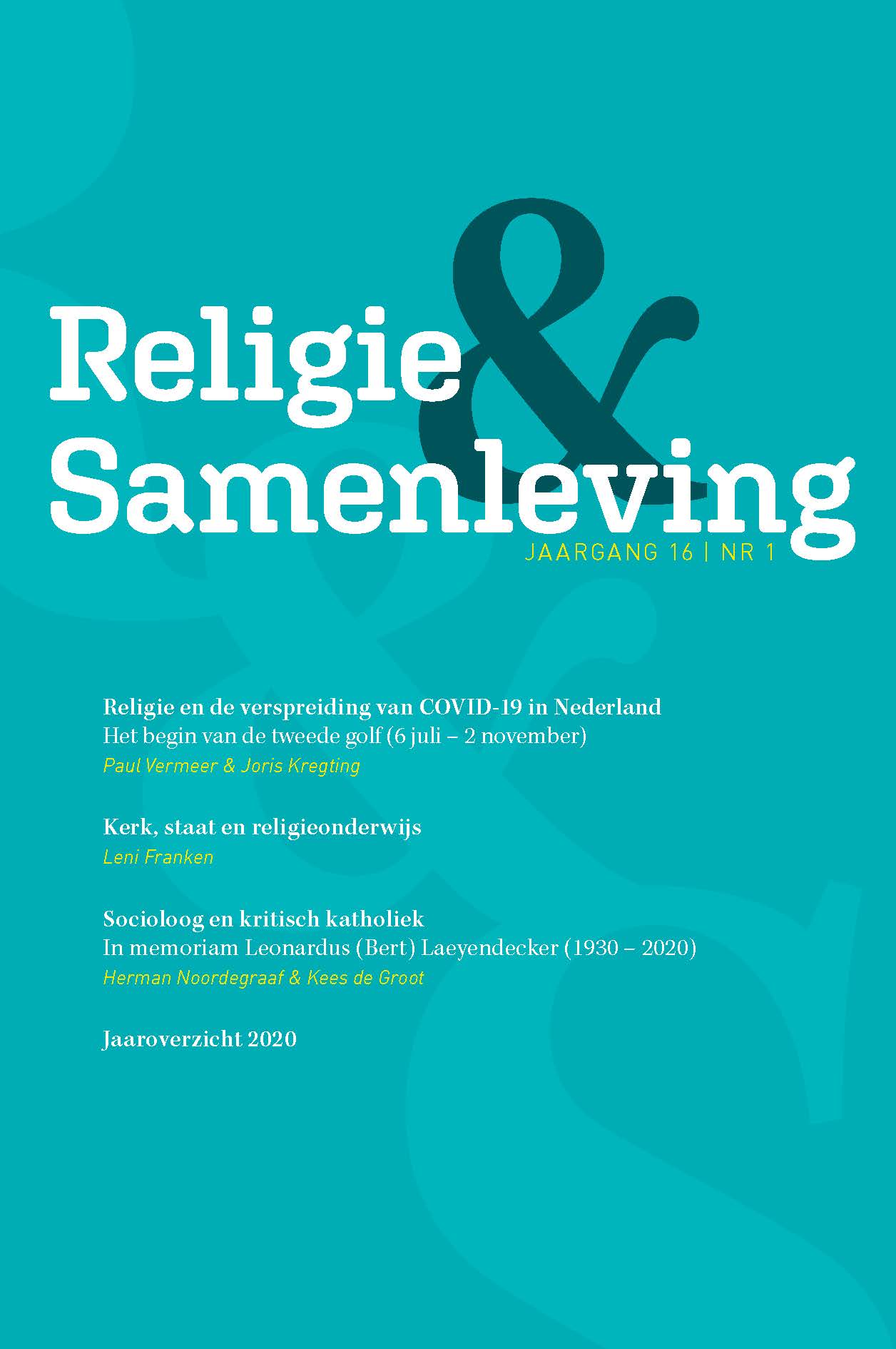Kerk, staat en religieonderwijs
DOI:
https://doi.org/10.54195/RS.11472Samenvatting
In Belgium and in the Netherlands, religious education (RE) in state schools as well as in faith-based schools is organized by the (recognized) religious communities/ schools and not by the state. Although RE is in both countries largely secularized and pluralized, it is officially organized in a denominational way. This is different in Scandinavia and in the UK, where the state is responsible for RE which is, accordingly, non-denominational. Also in France and in Luxembourg is the situation different, as RE is no part of the state school curriculum in these nations. In this contribution, I will illustrate how these different RE models are largely influenced by different church-state relations. In order to do so, I will make a distinction between (1) Lutheran and Anglican nations (non-denominational and non- confessional RE); Roman-Catholic nations with a strict separation between church and state (no RE as a separate school subject); and Roman-Catholic and mixed (Catholic + Lutheran/Calvinist) nations with a regime of ‘mutual independence’ between church and state (denominational and often also confessional RE). In a final part, I will illustrate how both in Belgium and in the Netherlands RE policy can change in a more pragmatic way, without institutional changes of their respective church- state regimes. Therefore three strategies are mentioned: (1) denominational and non-confessional RE; (2) a core curriculum RE; and (3 creative constitutional interpretations.




